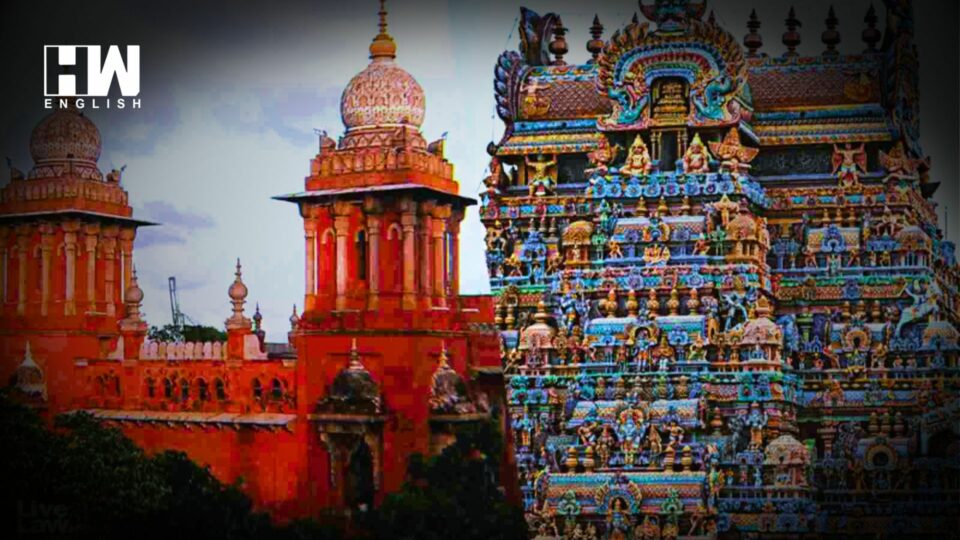The Madras High Court issued a directive to the Tamil Nadu Hindu Religious and Charitable Endowments (HR&CE) department to install signage in all Hindu temples, specifying that non-Hindus are restricted beyond the ‘Kodimaram’ area, denoting the sacredness of temple precincts. Justice S Srimathy of the Madurai Bench of the Madras High Court underscored that temples aren’t recreational venues but places of worship.
The court’s decision stemmed from a petition filed by D Senthilkumar, seeking exclusive access for Hindus to the Arulmigu Palani Dhandayuthapani Swamy temple and its sub-temples in Palani, Dindigul district. It mandated the placement of signs at temple entrances, flagpoles, and other noticeable spots, indicating the limitation on non-Hindu entry beyond the ‘Kodimaram’. Furthermore, if non-Hindues desire to visit a specific deity, they must submit an affidavit affirming their faith in Hinduism and commitment to temple rituals.
Also Read: ‘Sleepless Nights, Fear Of Judgement’: Inside The Mental Health Crisis Among Resident…
The court stressed that temple administrations must uphold customs and practices strictly, rejecting requests to confine the order to the Palani temple. It asserted the applicability of the directive to all Hindu temples, promoting communal harmony and societal peace.
Instances were cited where non-Hindus purportedly visited temples for secular purposes, breaching the fundamental rights of Hindus. Notably, incidents at the Arulmigu Brihadeeswarar Temple and Arulmigu Meenakshi Sundareswarar Temple were highlighted, where non-Hindus allegedly treated temple premises as picnic spots and conducted prayers, disrupting sanctity.
The judgment accentuated the HR&CE department’s duty to protect temples and uphold the constitutional right of Hindus to religious freedom. It emphasized that such incidents infringe upon Hindu fundamental rights enshrined in the Constitution.
The court’s directive serves to preserve the sanctity of Hindu temples, ensuring they remain spaces solely dedicated to religious worship. The judgment aims to safeguard Hindu religious practices and promote communal harmony within society by prohibiting non-Hindu entry beyond specified areas and implementing stringent measures.
As an independent media platform, we do not take advertisements from governments and corporate houses. It is you, our readers, who have supported us on our journey to do honest and unbiased journalism. Please contribute, so that we can continue to do the same in future.

